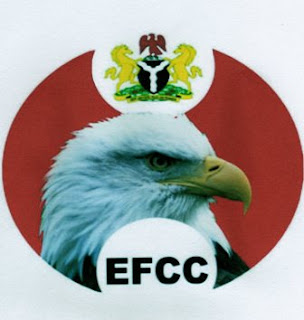Written by the Editorial board of The Guardian Newspaper
Let it be clear from the outset: the battle against corruption must be executed with all the seriousness it deserves and there must be no exception! Corruption has been appropriately deemed more dangerous to the world than even terrorism. And in fewer countries has this been more evident than Nigeria. So, it is a scourge on which the war must not only be relentless, the best weapons must be deployed. However, unnecessary drama and grandstanding which yield little or no results should not be part of the weapons of that war.
The body charged with the task of leading the war against corruption, the Economic and Financial Crimes Commission (EFCC), would seem to have found a renewed, and even commendable momentum, but it should be more thorough and less vain in its operations.
A case in point is the EFCC’s calls on some banks to investigate allegations of illicit financial transactions. During such visits, bank officials, including managing directors, were taken away, detained or arrested by the anti-corruption agency.
While the EFCC has the statutory mandate and powers to involve itself in such matters in banks and other institutions, it must, however, be pointed out that the agency should restrain itself from handling issues concerning banks as though it does not know the sensitive nature of the banking industry.
The slightest adverse report on a bank, whether real or imagined, has the potential to wreak havoc on that bank and the banking industry as a whole, as well as the entire economy. Banks, unlike most other organisations, have the unenviable status of being automatically negatively affected by even a perceived threat to customers’ interests.
But for the timely intervention of the Central Bank of Nigeria (CBN) by informing the populace that banks in the country were safe and sound, perhaps by now this country would have been confronted with a challenge bigger than any problem the EFCC was attempting to solve by swooping on some banks, whisking away top officials in manners that could jeopardise the confidence of the people in the banks. Before CBN’s announcement, some of the branches of the affected banks had started witnessing unusual influx of depositors withdrawing their money, the interpretation of depositors being that the banks had run into stormy waters. Nigerians have lived the unpalatable experience of bank distress and failure before and their anxiety was justified.
It is very important that field officials of EFCC and their supervisors understand that this nation, at its precarious economic and social position, cannot afford anything, no matter how exigent, that will throw a spanner into the wheels of banks and the financial system. One bank failure at this time of national economic recession and uncertainty will have severe multiple negative effects on an already traumatised economy and people.
EFCC should restrain itself from unnecessary and unwarranted showmanship in the conduct of its duties. It is high time it began to work discretely until investigations on any case are concluded.
The present situation in which a suspect has hardly been fully or thoroughly investigated and he is not only arrested but also publicly disgraced like a convicted criminal, only shows that the agency seems not to appreciate the measures against which its performance must be assessed. Its effectiveness is neither on the number of persons announced, through the media, as having been suspected, questioned, arrested or detained. EFCC’s success can also not be found in the raids on the offices or homes of its targets. Thorough investigations, diligent prosecutions and eventual convictions are the true measure of its success.
Thus, the agency should place a premium on decorum and professionalism in the conduct of its duties. It should stop raising unnecessary tension, damaging the image of presumed innocent individuals and organisations by putting an end to the public drama as well as attention-seeking which is fast becoming its trade-mark.
If the EFCC would like to thoroughly and professionally handle its assignments in the banking industry, for example, it should find ready allies in the Central Bank of Nigeria and Nigeria Deposit Insurance Corporation (NDIC) that are regulators and supervisors of banks. It should work with them closely to avoid driving the banks to situations that can snowball into a devastation of the economy. Banks are by law obliged to report their financial transactions within a specified threshold to these designated state agencies, including EFCC, via the Nigeria Financial Intelligence Unit (NFIU). It will, therefore, make sense and perhaps, reduce cost if EFCC discretely commences investigation of allegations against banks from these state organs. If the allegations are reasonably established from there, the agency can further action quietly, from other relevant sources, including the banks, until it secures enough evidence to arrest and prosecute the suspects in court.
EFCC needs to re-assess its human capital needs, its operational processes and procedures as well as information management.Only through discrete and thorough investigation as well as diligent prosecution can EFCC assist the government and the people of Nigeria to successfully fight corruption.
(adsbygoogle = window.adsbygoogle || []).push({});


